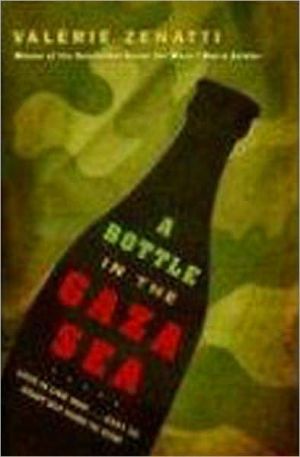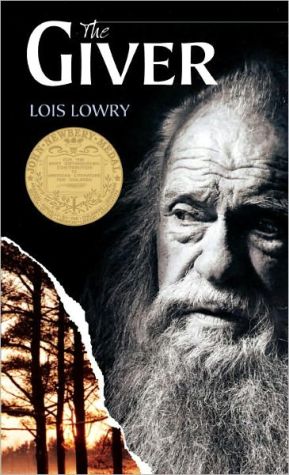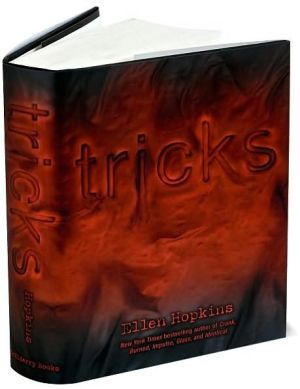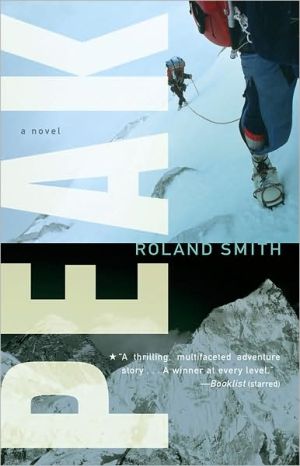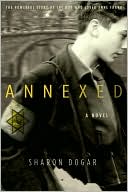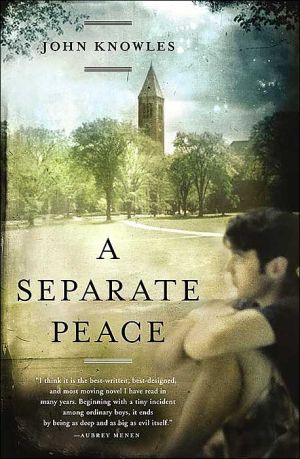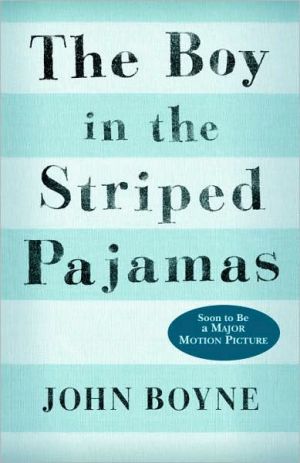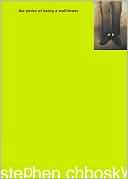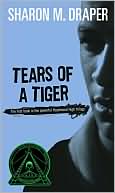Bottle in the Gaza Sea
Bottle in the Gaza Sea should be THE novel for teens on the Israeli/Palestinian conflict. When teen Tal Levine witnesses a bombing in Tel Aviv, she becomes despondent. Like so many people, she wants Israel and Palestine to live in peace. One day she puts her hopes into a letter, places the letter into a bottle, and gives it to her brother, asking him to toss it into the Gaza Sea. A young man in Gaza finds the bottle, and responds. He is critical, angry, annoyed at first, but eventually they...
Search in google:
Seventeen-year-old Tal Levine of Jerusalem, despondent over the ongoing Arab-Israeli conflict, puts her hopes for peace in a bottle and asks her brother, a military nurse in the Gaza Strip, to toss it into the sea, leading ultimately to friendship and understanding between her and an "enemy."VOYAAGERANGE: Ages 11 to 18. Tal, a seventeen-year-old girl from Jerusalem, places a message in a bottle that she gives to her older brother to deposit in Gaza while on military duty. Naim, a twenty-year-old Palestinian boy, finds the message and writes to Tal's e-mail address, starting the correspondence that makes up most of this book about the Israeli-Palestinian conflict. The disparities in their lives, the cultural differences, and the contemporary events that make up their surroundings come across in the messages, placing a human face on the conflict and giving the characters hope for peace and reconciliation. A sense of frustration at the wasted talents of bright young people living in this contentious region is embedded in the story. Two familiar traditions, those of pen pals and of novels composed of letters, are present in the book, and they serve to bring large issues down to a personal level and of encourage readers to follow in Tal's tracks. The novel is short, but the e-mail messages are long and drag on at times. The author and translator would have benefited from better exposure to the style of writing that has developed on the Internet. Teachers will find this book useful in the classroom, but it will appeal to few leisure readers aside from those interested in international issues. Reviewer: Jenny Ingram April 2008 (Vol. 31, No. 1)
\ A BOTTLE IN THE GAZA SEA\ \ \ \ By VALÉRIE ZENATTI \ BLOOMSBURY \ Copyright © 2005 \ \ Valérie Zenatti\ All right reserved. \ \ \ ISBN: 978-1-59990-200-5 \ \ \ \ \ Chapter One Jerusalem, September 9, 2003 \ It's a time of darkness, sadness, and horror. The fear's back again.\ Mom had just told me to go to bed for the third time (because I have to get up early in the mornings) when the windows started rattling. My heart gave a great thump inside my chest; I thought it had come halfway up my throat. A second later I realized there had been an explosion really close to our house.\ An explosion must mean a bomb.\ My older brother, Eytan, who's a military nurse, ran straight out with his first aid kit. Dad hesitated for a moment, then followed him. Mom held me in her arms and cried; then, as usual, she did four things at once: she turned on the TV and the radio, connected to the Internet, and grabbed her cell phone. That's what I call a highly technological response.\ I ran to my bedroom, confident that no one would nag me to switch off my light and that the next day I could even get to school late, or not go at all. Nobody would ask for an explanation. I would just have to say the bomb was in my neighborhood, in my street, I had nightmares all night, my blood pressure soared, I couldn't walk, I was too frightened to leave the house. And Mrs. Barzilaï would believe me, even if we had a math test.\ A few minutes after the explosion we heard the ambulance sirens-such a horrible noise, ripping through the air and our eardrums. A terrible yowling like a cat with its tail caught in a door, amplified by a sound system worthy of a hard rock concert. Five, six, seven ambulances, but I didn't count them all.\ I can hear Mom still on the phone, and the clear staccato voice of some woman correspondent on the radio or the TV. There will have been some deaths. There are almost always deaths. But I don't want to know how many, or who. Not today. Precisely because it happened so close to home.\ I'd like to turn the silence right up, but how do you do that?\ I went into the kitchen to drink a bit of vodka and lemon. Mom didn't see me. On my way I picked up the earplugs Dad uses when he goes swimming. With those plus my big pillow over my head I might have some hope of sleeping, even if I know that when I wake up tomorrow no one will tell me that everything's fine and it's all been a bad dream.\ The vodka didn't go down very well. Half a glass is obviously too much for me. This morning I had a headache and my face was all swollen. "You look like Bugs Bunny," Eytan told me, ruffling my hair. My brother's the only person in the world who can mess up my hair without being walloped within a second. He knows that and makes the most of it.\ He smiled at me. He didn't look like someone who'd spent the night witnessing horror, but then what do you look like when you've witnessed horror? He's twenty years old and doing military service in Gaza; I'm sure he sees terrible things there every day ... or every other day, when it's quiet. I expect he'd have to learn to not see, or at least to forget, if he wants to avoid looking old before he's twenty-five.\ It's strange, I don't think I've ever written as much as I have between yesterday and today. There are some girls in my class who keep diaries and write down what happens to them every day. I've never done that-dissected my love life, or said how old and useless my parents are, or divulged my dreams. Well, I imagine that's what you put in a diary.\ On my thirteenth birthday my grandmother gave me The Diary of Anne Frank, the story of the young Jewish girl in the Netherlands who spent two years of her life hiding with her family during the Second World War before being deported. She dreamed of being a writer, but more important, of freedom: to go to the cinema, to walk in a garden, to look at the trees and listen to the birds without fear of being caught and killed by the Nazis. There was another family in the hiding place with a son named Peter, and Anne fell in love with him. I've often wondered whether she really loved him or whether she didn't have any choice because he was the only boy there.\ What upset me most was the end of the book where it said: Anne Frank died two months before the camp at Bergen-Belsen was liberated.\ Just two months ... I read that sentence again and again, and for a long time I wished I could reach out, take Anne Frank's hand, and say, "Hang on, this hell is nearly over, it won't go on forever, just eight little weeks. Hang on and you'll be free, you'll be able to go to the cinema, to look at the trees and listen to the birds; you could even be a writer. Please, live!"\ But I don't have superpowers or a time machine, and that's what's so heartbreaking when you think about it.\ I still don't know why I'm writing all this. I get average grades for literature, nothing more, and I have no dreams of being a writer. What I really want is to make films, to be a director. Or perhaps a pediatrician, I haven't really chosen yet. But, since yesterday evening, I've got this incredible urge to write; it's all I can think about. As if there's a river of words bursting to come out of me to keep me alive. I feel as if I'll never be able to stop.\ I haven't managed to avoid the news. My eyes see, my cars hear, there are newspapers and radios everywhere, and they keep talking about the bomb attack.\ The terrorist blew himself up inside the Hillel café. They found six bodies. It's what they call an average attack, which means it will be talked about for a couple of days and then there will be a bit more in the Sunday supplements. There was a tragedy, a tragedy within the tragedy: a young woman was killed with her father. She was due to be married today. She was killed a few hours before putting on her beautiful white dress, a few hours before the photographer took the young couple to the loveliest places in Jerusalem to take pictures of the prince and princess who would have lots of children. The groom-who-never-got-married was devastated by the sight of her coffin. He wanted to put the wedding ring on his fiancée's finger but the rabbi refused, saying religious law forbade celebrating a union with a dead person.\ I wonder whether religious law devotes a chapter to how to behave when you're in the depths of despair.\ I close my eyes to forget the face of that girl who'll never be married. She was just twenty, barely three years older than me. What would my life be like if I knew I only had three years left? I have no idea-it's a stupid, pointless question but I still can't stop thinking about it.\ When the fear comes back, like now, we all seem to forget who we are. We all become potential victims, bodies that could end up lifeless and covered in blood just because someone chose to blow themselves up right next to us. I want to know who I am, what I'm made of. What would make my death any different from any other? If I said that to my parents or friends, they'd be really shocked and would tell me gently that I needed to rest. That must be why I've decided to write: so I don't frighten the others with what's going on inside my head ... and don't let them declare me a raving lunatic.\ Chapter Two Seeing Doves Fly\ My name is Tal Levine. I was born in Tel Aviv on the first of July 1986, but I live here in Jerusalem. I know that everyone on the planet knows the name Jerusalem, and if there are extraterrestrials they've probably heard about it too; it's a city that creates quite a stir. But no one knows it like my father and me. My father is passionate about history and archaeology, and he's one of Israel's greatest tour guides. When a head of state visits, he's the one they call on because he brings the stones to life with his stories. He's a magician. He has limpid green eyes, and this strange gleam appears in them when he starts talking about how King David chose to put the capital of his kingdom on this rocky mountain such a long way from the sea or a river, how his son Solomon built a temple and palaces, how Nebuchadnezzar, then the Romans, destroyed the temple. He can talk for hours about Jesus, who looked over Jerusalem from the cross.\ "Do you realize, Tal," he often says, "this is where all that happened and this is where everything still will happen." He explains how, much later, European crusaders fought the Muslims to reclaim Jesus' tomb. And then there were the long centuries when this Holy City fell from splendor. The Old Town, a tiny place stifled by its city walls, was all there was until a hundred years ago. "Dark little streets," my father says, "streets where a donkey could bump into a man without wondering whether he was a Jew, a Christian, or a Muslim. Several thousand good, pious people watched over the sacred sites of the three religions, thinking they were the last to remember them, and that as the world moved into a modern era, people would forget that Jerusalem is the center of the universe. They were wrong. When the Jews chose to come back to the land of their ancestors to be a free people, rivalries over the city began to simmer. The Jews said they'd been here first, three thousand years earlier, that it was written in the Bible, and that, in the two thousand years when they had had no country, all their prayers had been turned toward Jerusalem. The Muslims replied that they had been there for thirteen centuries, which is not really to be sneezed at, and that their prophet Muhammad had flown to the skies from here. The Christians tried to get their word in, reminding the others that Jesus died here, and should he ever come back to life, there was a strong chance it would be in the same place so it would be a good idea to have a few of them on the spot to welcome him. But you see, Tal, instead of loving this city in the way it deserves, instead of getting along, they've fought over her for more than fifty years, the way men might once have fought for a woman, with passion, with a little more hate for their rivals every day. They don't even realize their wars are now damaging the thing they claim to love, damaging it more and more violently in one way or another."\ That's how my father talks. That's what makes him a wonderful poet, a storyteller. I could walk with him for hours, traveling through time, looking at my city through eyes different from most people's. I know there are amazing cities in the world. I would love to see Paris, Venice, Beijing, and New York, hut I already know that this is where I want to live.\ To live, and not to die.\ I'm back on the subject now. I can't think about anything else at the moment, I can't forget the fact that the bomb was so close to home.\ A few years ago I went walking by the Dead Sea with lily father and Eytan. I fell and cut myself very badly. It was a really frightening, ugly wound, but I couldn't take my eyes off the blood, off that long opening from my knee to my ankle that made me feel as if my leg were no longer my leg.\ I've got exactly the same feeling now, except that I'm all in one piece. But inside my head, I'm in pieces. I keep thinking how often I go to the Hillel café, with Eytan when he's on leave, or with my friends. I keep thinking we could have been there. I delft understand how life can hinge on se little: whether or not you feel like going to the café along a certain street.\ There has been an incalculable number of bomb attacks in Jerusalem in the last three years. Sometimes it's every day, or even twice a day. You can't keep up with the funerals on TV or crying for the families, there are too many of them.\ People say they get used to it. Not me.\ I grew up with the idea that there could be something other than blood, hate, and mutilated bodies between us and the Palestinians.\ I was seven years old in 1993, but I remember the thirteenth of September really clearly. Mom and Dad didn't go to work, they bought tons of chips, little sausages, pistachio nuts, and champagne too. Their eyes sparkled and they kept the TV on the whole time but couldn't sit still in front of it.\ It's very rare for the TV to be on in the daytime.\ It's even rarer for my parents to buy junk food.\ It's incredibly rare for them to let us, Eytan and me, stuff our faces with crap and not say anything.\ And it's seriously unbelievable that they gave me, aged seven, champagne to drink.\ It's probably because of all that that I remember the thirteenth of September 1993 so well. On the screen, standing in front of a palace made of icing sugar, was our prime minister, Yitzhak Rabin. Next to him was some guy who looked like an actor from an American soap opera. In fact it was the president of the United States, Bill Clinton. He took Yitzhak Rabin by the shoulder and led him to a weird man with a black and white checkered scarf over his head. I gathered from what the commentator was saying that this was Yasser Arafat, representing the Palestinians. The two men shook hands, and all those thousands of people in their best clothes standing on the White House lawn (it said on the screen: Live from the White House) clapped as if this were some fantastic achievement.\ That was when I saw my parents cry for the first time. I was very embarrassed, and I think I was annoyed with them. There they were with these inexplicable tears in their eyes, looking like little children, and I felt like saying, "You'd better get back to being you quickly-I don't mind if you're serious, strict, or gentle, but just get back to being my parents. Parents don't cry, as far as I know. They know everything, they're very dependable and very strong, they don't just start crying ridiculously because they see two men shaking hands."\ I also remember being very frightened because, if my parents were crying, that meant something awful had happened and our life was going to change. The champagne, the chips, the little sausages, and the pistachio nuts must have been brought in to celebrate our last moments together, or some other dramatic, irreversible event.\ Dad looked at me.\ "Come over here, Tal."\ He sat me on his knee, stroked my face, and said, "People sometimes cry with happiness, sweetheart. And we're very, very happy today. What you've just seen is very important: the Palestinians and us, the Israelis, are finally going to agree about how to live in peace. There won't be any more war, ever. Maybe you and Eytan won't even have to do national service. This is the most overwhelming piece of news because we've dreamed of it for so long."\ He believed in it, my father. And, as I believe everything he tells me, that at least made two of us who saw white doves flying through the skies above Jerusalem that day.\ \ \ \ \ \ Excerpted from A BOTTLE IN THE GAZA SEA by VALÉRIE ZENATTI Copyright © 2005 by Valérie Zenatti. Excerpted by permission.\ All rights reserved. No part of this excerpt may be reproduced or reprinted without permission in writing from the publisher.\ Excerpts are provided by Dial-A-Book Inc. solely for the personal use of visitors to this web site.\ \
\ VOYAAGERANGE: Ages 11 to 18. \ Tal, a seventeen-year-old girl from Jerusalem, places a message in a bottle that she gives to her older brother to deposit in Gaza while on military duty. Naim, a twenty-year-old Palestinian boy, finds the message and writes to Tal's e-mail address, starting the correspondence that makes up most of this book about the Israeli-Palestinian conflict. The disparities in their lives, the cultural differences, and the contemporary events that make up their surroundings come across in the messages, placing a human face on the conflict and giving the characters hope for peace and reconciliation. A sense of frustration at the wasted talents of bright young people living in this contentious region is embedded in the story. Two familiar traditions, those of pen pals and of novels composed of letters, are present in the book, and they serve to bring large issues down to a personal level and of encourage readers to follow in Tal's tracks. The novel is short, but the e-mail messages are long and drag on at times. The author and translator would have benefited from better exposure to the style of writing that has developed on the Internet. Teachers will find this book useful in the classroom, but it will appeal to few leisure readers aside from those interested in international issues. Reviewer: Jenny Ingram\ April 2008 (Vol. 31, No. 1)\ \ \ \ \ \ School Library JournalGr 6-8- Told primarily through emails, this is the story of two young people on opposite sides of a political chasm: Naïm is Palestinian and lives in Gaza, and Tal is Israeli and lives in Jerusalem. Brought up in a family committed to Israeli-Palestinian peace, 17-year-old Tal writes a note, puts it in a bottle, and asks her brother, who is serving in the Israeli army, to throw the bottle into the sea in Gaza. Instead, he places it in the sand on the beach, and it is picked up by Naïm. Thus begins the email correspondence between "Gazaman" and "Bakbouk." As they slowly feel each other out, the teens begin to develop trust, friendship, and perhaps even something more. Their thoughts about their lives and about the political situation are carefully presented, and their musings and growing relationship constitute the central action of the novel. This smooth and unobtrusive translation starts out slowly and takes nearly one hundred pages to reach out and grab readers. The second half is compelling, but the ending is abrupt and feels unfinished. The book's appeal is likely to lie in the fact that these two characters are regular kids, yet are unusual in their sense of themselves as different from the people around them. They are caught in a situation not of their own making, they are not understood by the world, and they show, as young people often do, the simple and direct humanity of people of good will.-Sue Giffard, Ethical Culture Fieldston School, New York City\ \ \ \ Kirkus ReviewsWhen a bomb explodes at a nearby cafe on the evening of the tenth anniversary of a peace agreement between the Israelis and Palestinians, Tal, a 17-year-old Israeli girl, decides to reach out to a Palestinian neighbor. She asks her brother, serving his compulsory military service in the Gaza Strip, to throw a bottle with a letter inside into the Gaza Sea. She soon receives an email reply from 20-year-old Naim. At first the young man hides behind sarcasm and secrecy, but Tal, a persistent would-be filmmaker, draws out his true feelings. Through e-mails, text messages and diary entries, they express their anger and grief over the continuing violence and see beyond the stereotypes of their governments to recognize two young people who still have hope for peace and independence. Although the dialogue is occasionally stilted to introduce potentially unfamiliar historical events, Zenatti uses short, riveting chapters, as in her Batchelder Honor book, When I Was a Soldier (2006), to pack a punch with readers reluctant to voracious. The overall effect is one of a haunting relationship that will help teens understand both sides of the Israeli-Palestinian conflict. (Fiction. YA)\ \
